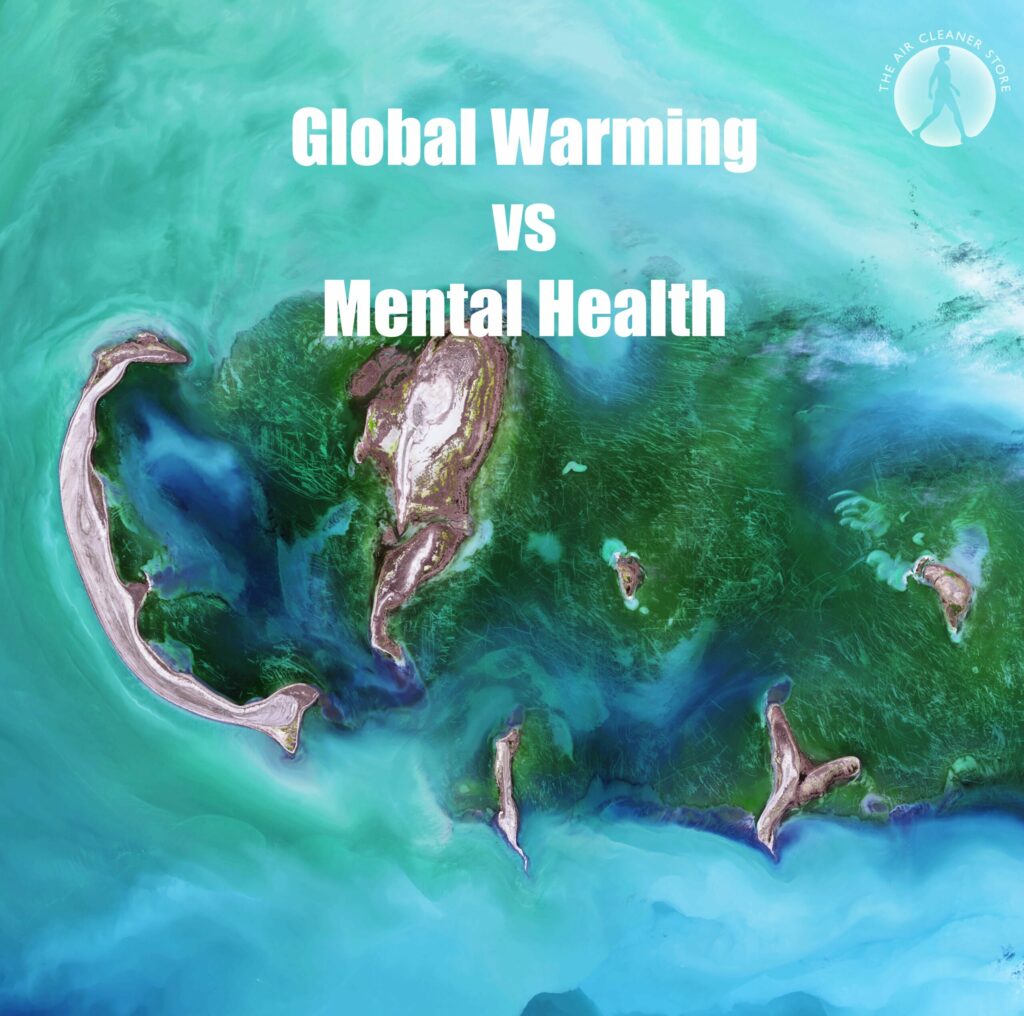Severe weather patterns including heat waves, heavy rain, and major hurricanes are constantly increasing, according to the 2018 National Climate Assessment.
These extreme weather events and the accompanying drought, wildfires and flooding are predicted to become even more intense and frequent as the planet continues to warm, according to the Center for Climate and Energy Solutions.
Climate change is estimated to result in an additional 250,000 deaths each year between 2030 and 2050 due to starvation, infections, diarrhea, and heat stress.
According to one study, that tracked the changes in mental health levels after natural disasters:
- 25 to 50 percent of people who are subjected to a severe weather event face mental health consequences.
- Up to 54 percent of adults and 45 percent of children experience depression.
The Immediate Effects
Following natural disasters, psychologists have noticed an increase in what are known as distress reactions, which involve things like :
- Anxiety
- Fear
- Rage
- Insomnia
- Easily triggered irritability
- Increased substance use
While these reactions can fade and recover with time, this isn’t always the case. People directly affected do not always seek treatment or find ways to cope with their trauma. In such cases, more serious mental health consequences develop, such as:
- PTSD,
- Depression,
- Anxiety disorders
For example, after Hurricane Katrina, 49% of survivors developed an anxiety or mood disorder. In addition, one of every six people experienced post-traumatic stress disorder (PTSD). Suicide and suicidal thoughts doubled in occurence.
The gradual effects
Climate change is making slow changes to our planet and we’re beginning to see the long-term effects of those changes on mental health.
According to a 2020 survey warming temperatures are linked to an increased risk of death from both accidents and suicide.
Another study found a connection between extreme heat and increased irritability, aggression, and even violence.
Levels of air pollution also have an influence on mental health. Research suggests that there also may be a correlation between anxiety, schizophrenia, and personality disorders and exposure to poor air quality. There is ongoing research to determine how air pollution affects mental health conditions.
What Can You Do About It ?
Simply watching or reading about climate change and natural disasters, or hearing from friends or family who are affected by extreme weather may have a negative effect on your mental health.
If the impacts of climate change are impacting your mental health, you are not alone.
This pattern is expected to continue, but even when things seem out of your control, there are measures you can take to develop resilience and cultivate mental health. Although you may not be able to stop climate change, taking action can protect your mental health.
- Acknowledge your emotions
It’s natural to be concerned about how climate change could affect your life, your children’s lives, and the world as a whole. Don’t try to mask your emotions.
Instead, have a conversation with your friends and family. You might discover that they have many of the same problems as you, making you feel less alone.
- Take action against climate change.
Reduce carbon emissions by walking and bicycling. Consolidate shopping trips. Join a group that is working towards higher air quality standards in our local, state, national and international communities.
- Make a safety plan
You might feel powerless in the face of climate change. Making yourself and your family a little more resilient and prepared is one important way to reclaim some of the power.
For example , if you’re in a wildfire area, you can try to regain control by doing something small, like having go bags ready so you can evacuate quickly.
You could also prepare your vehicle, create an emergency plan, and stock your home with safety items such as fire extinguishers, water, flashlights etc.
- Take part in your community.
An older study conducted in Florida during hurricane season showed that areas with a good sense of community experienced less mental health distress after hurricanes. Get active with local groups or organizations whether it’s a weekly fitness group or a neighborhood buy-nothing group. Even basic things like getting to know your neighbors can be beneficial.
- Understand your triggers
“Worry is a habitual process,” says Michelle Newman, a Pennsylvania State University professor of psychology and psychiatry. “And if you’re a worrier, you’ll look for stuff to be concerned about.” She suggests that you try to recognize what causes your worries. Perhaps it’s images of hurricane-damaged homes or accounts of animals affected by wildfires.
When you know what triggers you, you can cut off your anxiety when it’s not helping you by learning to avoid — or restrict — your exposure to your triggers when things get too much.
This could mean restricting your news consumption or being honest with friends when they bring up a potentially triggering subject.
- Don’t be afraid to reach out for professional help if you feel you need it
If your climate anxiety or fear of the future has become so overwhelming that it is interfering with your everyday life tasks , there is support.
You can always reach out for help to your doctor, a mental health professional or a therapist.
There are also a variety of online support groups and courses available.
